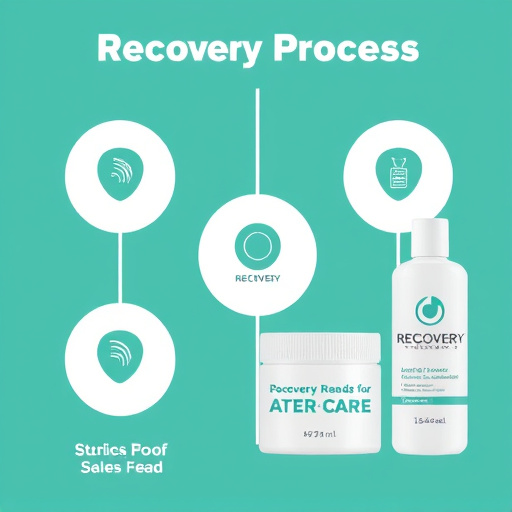Traumatic Brain Injuries (TBI) caused by head trauma, such as whiplash from car accidents or sports injuries, require specialized care. Whiplash treatment specialists play a vital role in diagnosing and treating TBI by assessing forces involved, neck impacts, and incident severity. They offer targeted interventions like manual therapy, exercise protocols, and postural restoration education for enhanced recovery outcomes. Personalized treatment plans cater to each patient's unique needs, addressing immediate and long-term TBI effects. A multidisciplinary approach, including cognitive rehab and emotional support, overcomes complex challenges in TBI recovery. Preventing TBIs involves individual precautions and community initiatives like raising awareness and promoting safety measures.
Traumatic brain injuries (TBI) are a serious health concern, often resulting from impact to the head. This article delves into the multifaceted world of TBI care, exploring its causes and symptoms, while highlighting the crucial role of a whiplash treatment specialist in management. We discuss advanced assessment techniques for accurate diagnosis, emphasizing personalized treatment plans for rehabilitation. Challenges in recovery are addressed, alongside prevention strategies aimed at minimizing TBI risk.
- Understanding Traumatic Brain Injuries (TBI): Causes and Symptoms
- The Role of a Whiplash Treatment Specialist in TBI Management
- Advanced Assessment Techniques for Accurately Diagnosing TBI
- Personalized Treatment Plans: Approach to TBI Rehabilitation
- Common Challenges in TBI Recovery and How to Overcome Them
- Prevention Strategies: Minimizing the Risk of Traumatic Brain Injuries
Understanding Traumatic Brain Injuries (TBI): Causes and Symptoms

Traumatic Brain Injuries (TBI) are a serious medical condition resulting from a blow or jolt to the head, or from an object penetrating the skull. They can range from mild concussions to severe injuries with long-term effects on brain function. Whiplash, a common type of TBI, often occurs in motor vehicle accidents and sports-related incidents. Symptoms may include headaches, dizziness, nausea, confusion, and memory problems. More severe TBIs might lead to seizures, speech or language difficulties, and even paralysis.
Identifying the causes of TBI is crucial for proper management. Whiplash treatment specialists focus on these factors: sudden deceleration or acceleration forces, impact to the head or neck, and the severity of the incident. Early recognition of symptoms is vital for effective treatment and rehabilitation, which may involve physical therapy, cognitive training, and counseling.
The Role of a Whiplash Treatment Specialist in TBI Management

In the intricate landscape of traumatic brain injury (TBI) management, a Whiplash Treatment Specialist plays a pivotal role, particularly in cases where trauma stems from vehicle accidents or similar incidents involving rapid acceleration and deceleration. These specialists are experts in addressing the unique challenges posed by whiplash, which can often complicate TBI diagnosis and treatment. They employ advanced techniques to evaluate and manage symptoms related to neck injuries, ensuring comprehensive care that considers both the brain and spinal cord.
By integrating specialized knowledge of musculoskeletal system dynamics with neurologic expertise, Whiplash Treatment Specialists offer targeted interventions. These include manual therapy, exercise protocols tailored to individual needs, and education on postural restoration. Their holistic approach facilitates better outcomes, enhances recovery, and contributes significantly to the overall management of TBI patients, especially those with associated neck injuries.
Advanced Assessment Techniques for Accurately Diagnosing TBI

Traumatic brain injuries (TBI) are complex and require advanced assessment techniques for accurate diagnosis, especially from specialists like whiplash treatment experts. These professionals employ sophisticated methods beyond standard imaging scans to uncover subtle changes in cognitive function and neurological patterns. Tools such as neuropsychological assessments, cognitive testing, and specialized computer-based evaluations help identify areas of impairment that may not be evident through conventional means.
Whiplash treatment specialists understand the nuances of TBI, focusing on both immediate and long-term effects. They carefully evaluate symptoms like headaches, dizziness, memory lapses, and mood changes, using comprehensive assessment tools to tailor treatment plans accordingly. This meticulous approach ensures patients receive the most effective care for their specific TBI-related challenges.
Personalized Treatment Plans: Approach to TBI Rehabilitation

Personalized Treatment Plans are at the heart of effective TBI Rehabilitation, where each patient’s unique needs are addressed. Unlike one-size-fits-all approaches, this tailored method considers the severity and specific type of injury, as well as individual factors like age, physical health, and psychological well-being. A whiplash treatment specialist plays a crucial role here, designing interventions that may include physical therapy to improve movement and reduce pain, cognitive rehabilitation to enhance memory and problem-solving skills, and emotional support to manage trauma-related stress.
These plans are dynamic, evolving as the patient progresses. Regular assessments monitor improvements and adjust treatments accordingly. This personalized touch ensures that each patient receives the most optimal care, fostering a better chance of full recovery and improved quality of life post-TBI.
Common Challenges in TBI Recovery and How to Overcome Them

Traumatic Brain Injuries (TBI) present unique challenges during recovery due to their complex nature and wide range of symptoms, which can include cognitive, emotional, and physical impairments. One common difficulty is the varied recovery timeline; individuals may experience different rates of improvement, making it hard to predict a specific path or timeline for healing. This unpredictability can be daunting for patients and their support networks.
Overcoming these challenges often involves a multidisciplinary approach. For instance, seeking specialized care from a whiplash treatment specialist can aid in managing physical symptoms like neck pain and headaches, common in TBI patients. Additionally, cognitive rehabilitation therapy helps improve memory, attention, and problem-solving skills. Emotional support through counseling or therapy is also vital to address the often-overlooked psychological impacts of TBI. With the right combination of treatments and a supportive environment, individuals can navigate these challenges and work towards meaningful recovery.
Prevention Strategies: Minimizing the Risk of Traumatic Brain Injuries

Preventing traumatic brain injuries (TBIs) is a multifaceted approach, one that involves both individual precautions and community-wide initiatives. One of the primary ways to minimize the risk of TBIs is through swift and effective treatment for conditions that can lead to them, such as whiplash. Whiplash, often associated with car accidents, can cause serious neck injuries that may contribute to TBI if left untreated or improperly managed. A whiplash treatment specialist plays a crucial role here, offering expert care that can significantly reduce the risk of complications and secondary damage.
Community-level strategies also contribute to prevention by raising awareness about TBI risks and promoting safety measures like wearing protective gear during contact sports, adhering to road safety regulations, and ensuring proper workplace safety protocols. Early intervention and robust support systems for individuals at higher risk, such as the elderly or those with pre-existing conditions, can further mitigate the likelihood of traumatic brain injuries occurring.














